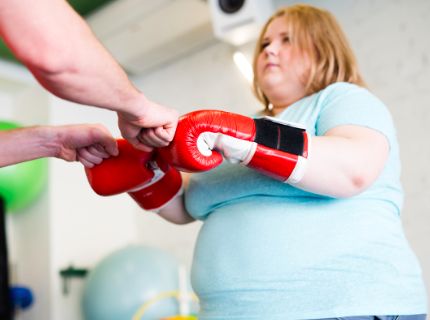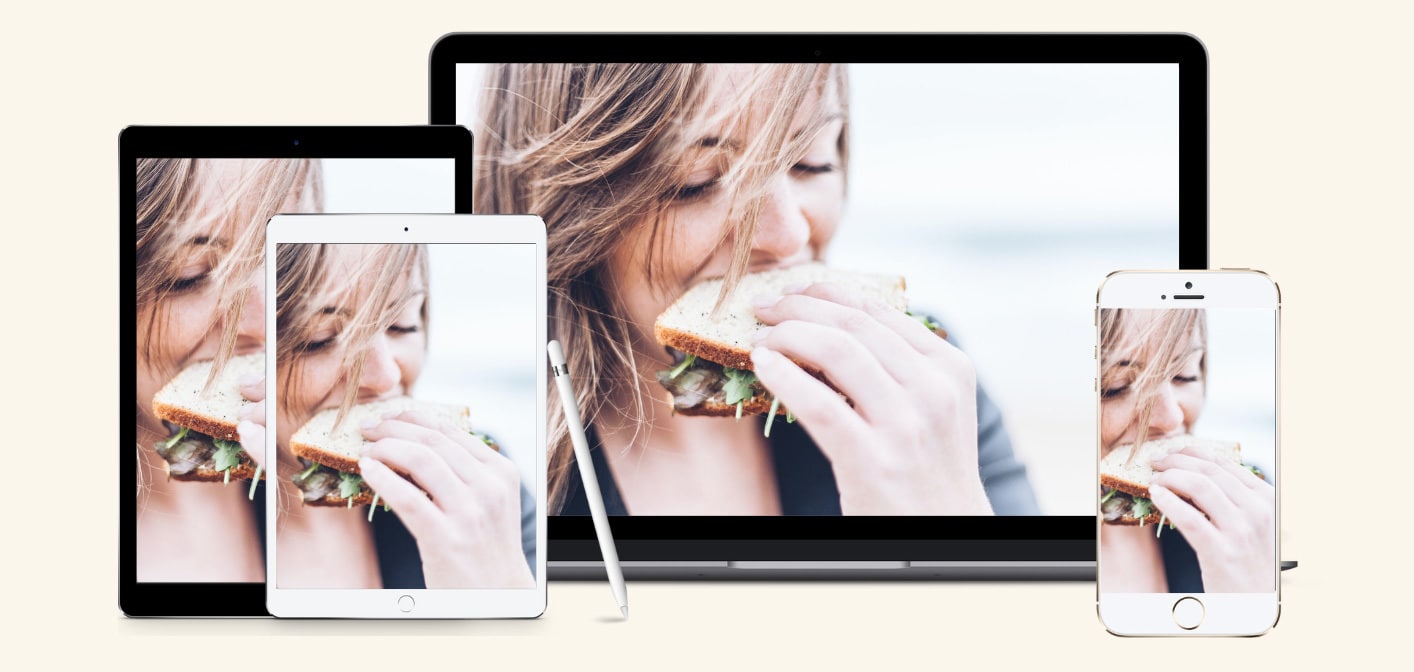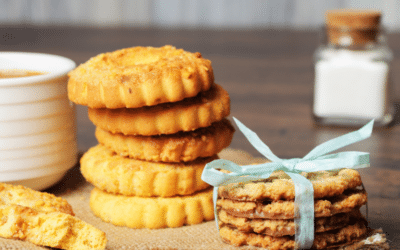I think many of us can relate, including myself, when I say that one of the hardest parts of deciding to ditch the diets is coming to terms with what the alternative is… and that is body acceptance. Simply not pursuing weight loss anymore. Sounds completely whacky and scary right?
The non-diet approach (Intuitive Eating) is an approach that doesn’t pursue weight loss. Rather, it pursues healthy behaviours and lets weight do its thing. It means letting go of the calorie-tracking apps or food rules and letting your own inner wisdom of hunger, fullness and satisfaction guide the way.
The worry can be that food freedom will result in the inability to control oneself around food. And the biggest fear for many when deciding the ditch the diets is the fear of weight gain. These fears are all valid.
Before we get into the meat of this article and ways to address a fear of weight gain, it should be made clear that this desire is not abnormal. In no way is the Health at Every Size (HAES®), Intuitive Eating, or the Body Acceptance movement meant to make folks feel ashamed for wanting to change their bodies. HAES® isn’t even anti-weight loss, it’s simply anti-pursuit of weight loss.
The reason why these movements are not (or at least shouldn’t be) judging individuals for a desire to change their bodies is that we live in a culture that promotes thinness in many different capacities. Why wouldn’t we all want to be thin in a society that discriminates for body size?
Weight Bias is a form of Discrimination
We all hold biases. These are trained social preferences. We’re all human.
One preference we’re trained to hold is a preference for thinness. Weight bias is defined as negative attitudes towards, and beliefs about, others because of their weight.
This results in a culture that sells ways to fix our bodies into a size that society deems to be acceptable. And it called “diet culture”.
Diet culture tells us that our bodies are not worthy of care or love until they have reached a particular size. And even once we’ve reached that “goal size”, there is still a lingering fear of becoming the size that our society seems bent on eradicating.
“I am a thin woman. I fear weight gain because I see the way society treats larger bodied folks.”
But, that also means as a thin woman, I cannot and will not, be able to properly emphasise, or feel the emotions, that those who are presently in a larger body feel. But, I can sympathise, or try to understand the feelings of those in a larger body. And in doing so, I hear about the negative lived experiences of others who live in larger bodies. For example, traveling difficulties, limited clothing choices/shopping, unwarranted judgements at restaurants and grocery stores and much, much, more. We live in a society that tells people to change their bodies rather than the discriminatory practices of the culture to change.
In no other forms of discrimination do people:
1. Feel biased against people in their own group and
2. Do we tell the oppressed group to change themselves to better fit the society.
Can you imagine if we simply told people who utilise mobility assistance devices to simply, “learn to walk” so we wouldn’t have to make things accessible?
Absolutely not, the idea is ludicrous. Yet, here we are, in a society that tells people to change their body size, to better fit an environment built around the thin ideal. So, one can imagine why it is simply wrong to tell people of larger bodies, that a desire for weight loss isn’t right. Unless my body changes, I won’t know the ins-and-outs of a life where my body is a source of stress and judgement, therefore, I am not here to tell people that a desire to change is wrong.
Taking the Spotlight off Body Size
What I can do, is offer up some solutions to at least take part of the spotlight off of body size. To begin, I think this is a good time to reflect on what the desire for weight loss is about.
Is weight loss about wanting to better keep up with the kids? Is it about wanting to “improve health”? Or is it about acceptance or something else? Think about what will come out of weight loss. Could these desired outcomes associated with weight loss actually come from a different means of change? After all, I imagine you’re reading this article becomes previous weight loss attempts haven’t resulted in improved health or permanent weight loss. Maybe your weight has even increased with every diet attempt. This is pretty common.
“But I need to get fitter…”
What are other ways do you think you could improve your fitness/flexibility/reduce aches and pains or increase your ability to keep up with the kids? Are you currently moving your body regularly? Or are you only deciding you will do this when you’ve lost the weight / pursuing weight loss? What things can you start to do as of TODAY to improve how you feel?
“But what about my health?”
What are other ways can you support your health, outside of weight loss? Because weight doesn’t necessarily equate to improved health. Behaviours do (more on weight and health here).
Have you thought of options like managing stress, improving your sleep, seeking mental health support, adding more fruits and vegetables to your diet, reducing alcohol intake? There are many more ways to support health that aren’t about weight.
Because after all, diet’s don’t work for many people. Dieting is ANYTHING that you do to pursue weight loss whether it be jazzed up as a ‘lifestyle’ or a full blow detox diet. Keep brainstorming ways that health can be supported outside of the pursuit of weight loss.
It Isn’t Expected that We Immediately Ditch the Diets & Weight Loss Desires
Next, it isn’t expected that the desire for weight loss is eliminated. But, an active step to lessen the deafening message of weight loss, is to work on body acceptance. A lot of people think that ditching diet culture means suddenly falling in love with their body. I can easily say, that even your favourite body-positive Instagram influencer, has many bad days. Personally, I have a lot of bad days. But, I also recognise that it’s not about the bad days, but how I learn from them.
If I wake up in the morning disgruntled about my body, that tells me it is time to take a step back. What other things are going on in my life that could be eliciting this stress response? Am I visiting family for the first time in a while? Is work becoming too much? Am I projecting insecurities from other areas of life onto myself? Combat negative body thoughts with positive self-talk. If I wake up in the morning wishing my tummy-area was different, then I can combat that thought with a thought about how I am having a good hair day.
Another way to turn down the volume on a desire for weight loss is to work on respecting your body. Avoid the formation of negative body thoughts all together by not body-checking. What is body-checking? It’s any situation where one unproductively takes extra time to examine their body. That can look like staring into the mirror trying to decide what outfit looks the tiniest, it can look like squeezing tummy fat in disdain, and it can look like paying more attention to a body part (let’s say thighs) than that body part deserves.
Other ways to promote body respect is to acknowledge the care your body is worthy of. We are worthy and deserving of nourishment, comfortable movement, respect from our partners and peers, worthy of comfort in our clothes, and so much more. At any size, no matter where a person is on diet culture spectrum is the freedom to care for oneself in the ways available to you.
Grieving the Loss of Your Weight Loss Goals
Given the ways diet culture seems to scream in our ears that weight loss is our only solution for a better life, it is normal to want to pursue weight loss. However, what we rationally know about dieting is that it tends to hurt our health. Therefore, acknowledging ways we can care and respect our body outside of weight loss is not only crucial to our health, but important to begin leaving a desire for thinness behind. This process won’t happen overnight.
In fact, it’s even normal to grieve the loss of the thin ideal.
It’s okay to go through a phase of denying the ways that dieting has been harmful. Get angry! What has dieting taken from you? Maybe you’re ready to start intuitive eating, but only once you’ve dropped some weight? That’s bargaining. Some of us may be in a place where we recognise that dieting has harmed us and it no longer serves us, but the thought of giving up on dieting makes us really sad. After all, a $60 billion industry has told us that dieting is the answer, and without the answer, it is normal to feel depressed.
Acceptance
The last stage of grief is acceptance. If you are fortunate to get to a place where you can at least have a neutral view of your body and are ready to leave weight loss behind, that is fantastic. But, it probably will take some time. If you are someone who has made it this far, be an advocate for your peers. Don’t shame dieters but encourage and promote folks to take non-diet approaches. Help people along their journeys. Getting to a place of acceptance or neutrality also comes with the responsibility to use your voice to speak for those who don’t have one.
If you’re struggling with any of this, you may find the FREE audio guide and actionable workbook helpful as a starting point, which provides 7-steps to find food peace and food freedom.






